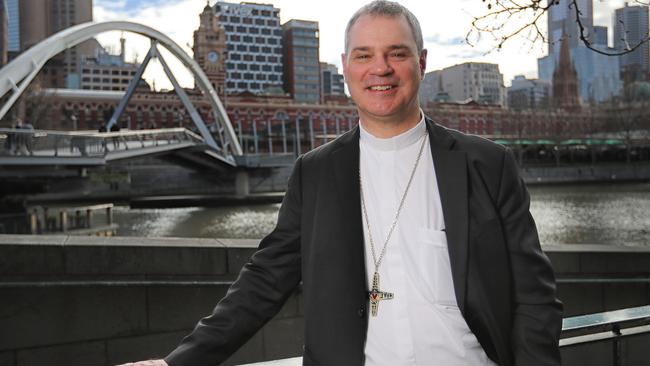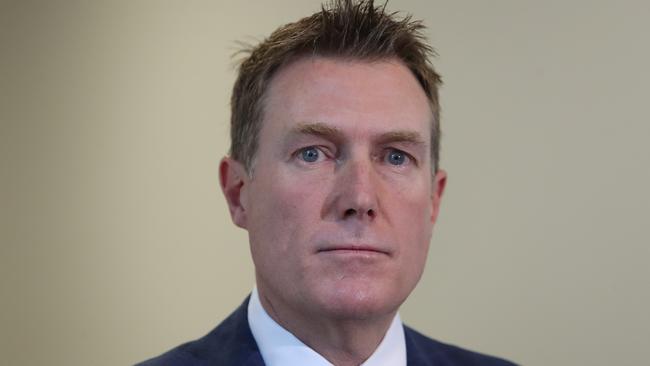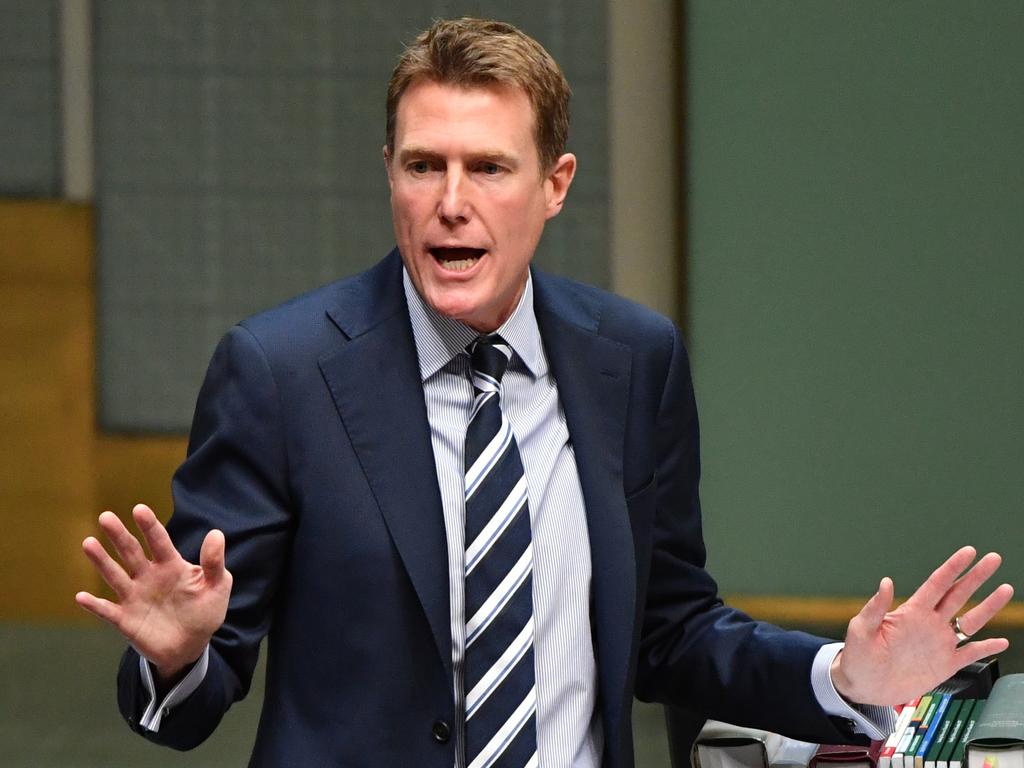Catholics, Scott Morrison to clash on religious freedom
Cabinet proposals aim to provide religious groups with exemptions from discrimination laws.

Scott Morrison is headed for a showdown with the Catholic Church over religious freedoms, as cabinet meets today to discuss draft proposals for federal laws that would protect faith-based organisations from vexatious cases launched through state anti-discrimination tribunals.
The Australian understands Attorney-General Christian Porter’s proposals to be considered today aim to provide religious groups with exemptions from discrimination laws, which the government argues will satisfy their demands and offer protection for faith-based schools.
The proposals would ban discrimination on the basis of faith in areas such as employment, housing and the use of services.
But Catholic Archbishop of Melbourne Peter Comensoli told The Australian that any new laws must be “positive”, protecting religious freedom as a “universal human right”. The country’s largest church is demanding that the government go further than an exemption-based law and take a “positive approach to recognise religious rights” that would protect schools, hospitals and charities adhering to church teachings.
“We are in favour of some (sort of) religious discrimination act but it is important that it is a positive law, one not about exemption,” Archbishop Comensoli said.
“We have signed up to a number of international covenants in terms of religious freedom as a basic human right.
“We are keen to see some way in which that might be legislated.”

The proposals to be discussed by cabinet today, with a final draft bill expected before the end of the year, would prevent claims such as the “Porteous case”.
In 2015, Tasmania’s Catholic Archbishop, Julian Porteous, was subject to an anti-discrimination claim under state law over an anti-same-sex marriage pamphlet that Greens candidate Martine Delaney argued had discriminated against and humiliated gay sex couples. While attempts to conciliate failed, the case never made it to the tribunal. Nevertheless, proponents of religious freedoms cite the case as a watershed.
Mr Porter is believed to have assured church groups and religious leaders that any bill would prevent a repeat of such cases. The Attorney-General is understood to have told MPs in confidential briefings last month that making a positive right to religious freedom risked opening up a Pandora’s box of rights claims by other groups and that the Coalition would never accept the concept of a bill of rights model for Australia.
A senior conservative MP told The Australian of being “uncomfortable” with regulating or legislating how civil society interacts. “Inviting more lawyers to the party takes something away from a free society,” one MP said.
Catholic bishops, while supportive of an anti-discrimination act, are also asking for changes to the sex discrimination act to provide positive protections to faith-based institutions to act according to their teachings. Current protections under the act exempt religious groups from adhering to sex discrimination laws.
Archbishop Comensoli said the exemption approach did not necessarily protect religious schools from falling foul of discrimination for adhering to church teachings.
“It is not just something about individuals but it is organisations as well that we would be wanting to see, so that an institution, like a hospital for instance, because of its religious position around the value of life, it comes out of a religious understanding, would be able to offer its services pertinent to that particular characteristic,” he said.
“Another example is to be able to teach in our churches, in our schools, in our groups around what we believe is the nature of marriage. That is not to make any comment about what other people hold — it is simply to be free to speak our own position.”
Mr Porter told The Australian that the final bill would deliver a religious discrimination act that “mirrors other anti-discrimination acts such as those already covering race, sex and aged discrimination”.
“We remain committed to delivering on that promise and we are close to settling a draft bill for public consultation,” he said.
“Consultation has already occurred during the drafting process with a variety of stakeholders, including religious groups, and there will be further opportunities before the bill is introduced to the house.”
Mr Porter said the rights of faith-based institutions to teach issues such as marriage according to their doctrines would not be canvassed in this legislation, but considered separately. “Separate to this process, we have also asked the Australian Law Reform Commission to inquire into religious exemptions to discrimination laws across Australia,” he said.
“The ALRC inquiry is designed to ensure that legislative exemptions to discrimination based on a person’s identity are limited or removed, while also protecting the right of religious institutions to conduct their affairs in a way consistent with their religious ethos.”
Australian National Imams Council spokesman Bilal Rauf said it was important that religious organisations were given legal protection to teach in accordance with the tenets of their faith.
“There are presently some protections. For the most part, these have been effective. However, there is concern about a changing legislative landscape. In this context, there needs to be a measured and considered approach,” Mr Rauf said. “From a minority faith community perspective, we also hope that the proposed laws will provide a level of protection against vilification on the ground of someone’s religion or religious belief, particularly against speech or conduct which may reasonably incite hatred or violence.”
Anglican Public Affairs Commission chairwoman Carolyn Tan backed the government’s approach for the anti-discrimination laws to act as a “shield and not a sword”.
“The problem is the whole Israel Folau thing has clouded the issue …It should be a protection for people being discriminated against on the grounds of their religion. It is not a licence to discriminate against other people,” Dr Tan said.



